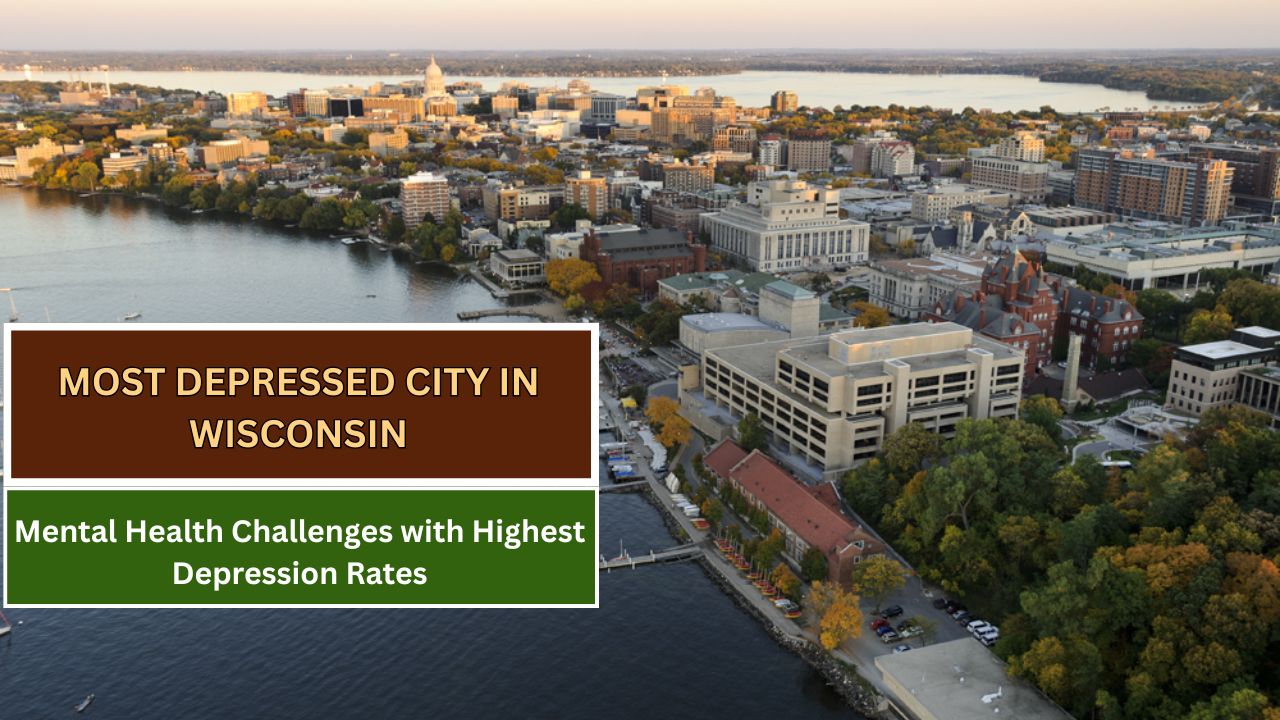Madison, Wisconsin, the state’s capital and second-largest city, has been identified as having the highest prevalence of depression among Wisconsin’s metropolitan areas. According to data from the Centers for Disease Control and Prevention (CDC), 26.9% of Madison’s residents have been diagnosed with depression, placing the city seventh nationally among U.S. metropolitan areas for depression rates.
Factors Contributing to High Depression Rates
Several factors may contribute to Madison’s elevated depression statistics:
- Climate Conditions: Madison experiences long, cold winters with limited sunlight, which can lead to Seasonal Affective Disorder (SAD). The city’s climate includes numerous cloudy days and significant precipitation, factors associated with increased depression rates.
- Demographics and Reporting: As a university town with a younger population, there may be higher awareness and reporting of mental health issues. Younger adults are statistically more likely to report depressive episodes.
- Healthcare Access: Madison’s robust healthcare infrastructure may lead to higher diagnosis rates, reflecting better access to mental health services rather than a higher incidence of depression per se.
Statewide Context
Wisconsin’s overall depression rate stands at 22.6%, placing it in the mid-range nationally. This suggests that while Madison’s rates are notably high, they may be influenced by localized factors such as climate and demographics. America’s Health Rankings
Additional Considerations
It’s important to note that higher reported rates of depression in areas like Madison may also indicate greater mental health awareness and reduced stigma, leading to more individuals seeking diagnoses and treatment.
Resources and Support
For those seeking support or more information on mental health resources in Wisconsin:
- CDC Mental Health Resources: https://www.cdc.gov/mentalhealth/
- Wisconsin Department of Health Services – Mental Health: https://www.dhs.wisconsin.gov/mh/index.htm
- National Alliance on Mental Illness (NAMI) Wisconsin: https://namiwisconsin.org/
If you’re interested in exploring resources or strategies to address depression, feel free to ask for recommendations on mental health support, therapeutic approaches, or community programs.
This article has been carefully fact-checked by our editorial team to ensure accuracy and eliminate any misleading information. We are committed to maintaining the highest standards of integrity in our content.

Outside of work, he enjoys playing chess, following cricket, and writing short stories. His commitment to integrity and in-depth analysis strengthens OTE News’ mission of providing trustworthy journalism.




